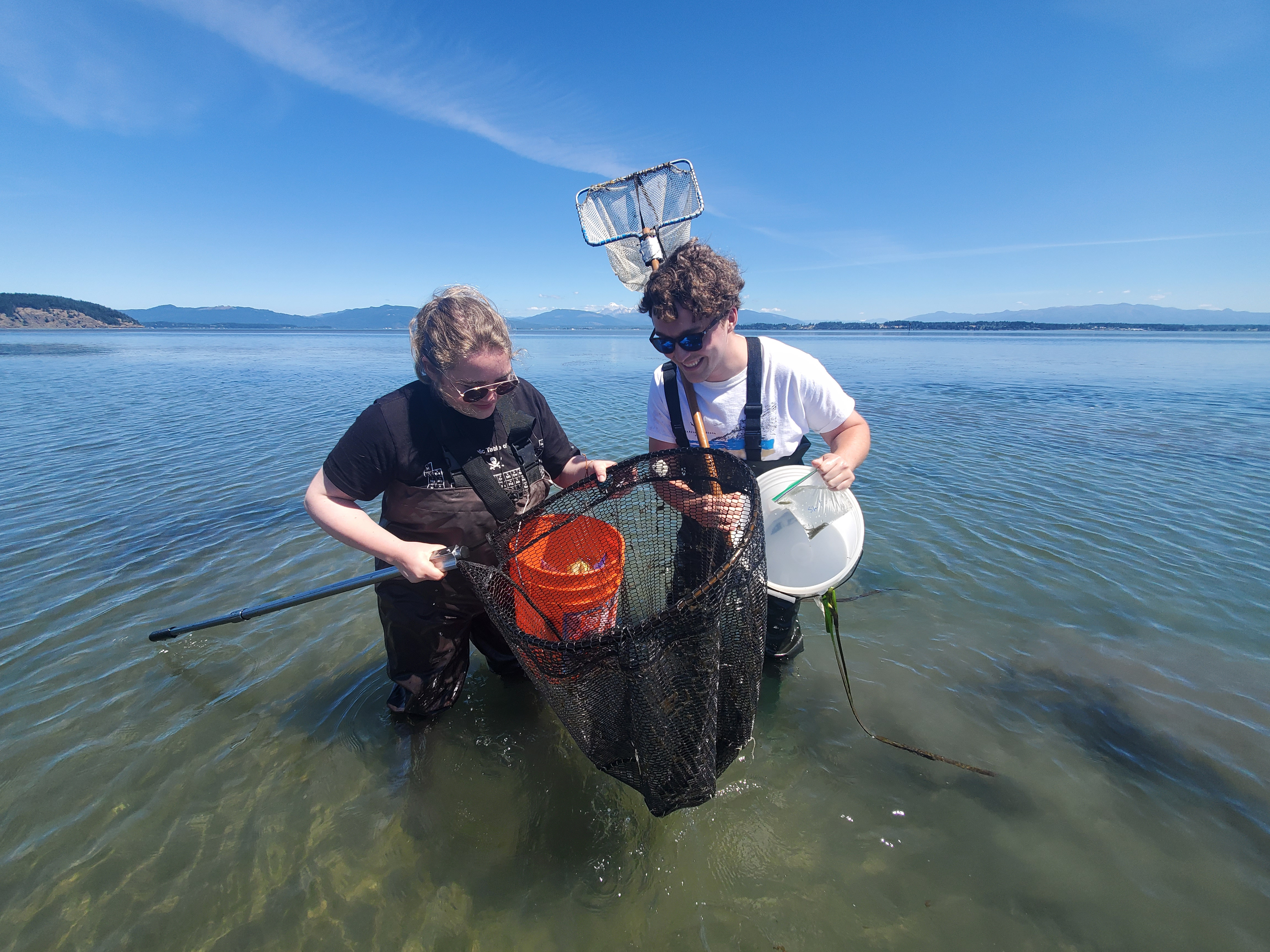
Undergraduate students from Walla Walla University participate in field research near Anacortes, Washington. Photo provided by Walla Walla University
Walla Walla University recently received a $235,000 collaborative grant from the M.J. Murdock Charitable Trust to fund undergraduate research into harmful algal blooms. Alongside researchers from the University of Portland and Willamette University, the researchers hope to better understand and more quickly detect the algal blooms, which can produce toxins harmful to people and animals. The goal of the project is to develop molecular methods to detect the blooms.
The university’s portion of the grant will fund summer stipends for WWU undergraduate and graduate researchers for the next three summers and will connect them with partner institution researchers to share ideas, equipment, and expertise. Walla Walla University’s students will examine how the harmful blooms impact marine invertebrate food webs.
Cecilia J. Brothers, assistant professor of biology leading WWU’s algal research, says the project is good news. "Collaboration across institutions in the Pacific Northwest means more progress towards understanding the impacts of harmful algal blooms. At the same time, WWU biology students are immersed into the wider scientific community," Brothers said.
Ryan Kenton, one of the principal investigators from University of Portland, says, “The three schools or the four professors all have slightly varying skills and abilities and our specialties are slightly different, but together, we felt as though we could really improve this research and try something new.”
— Kelsi Dos Santos is Walla Walla University Relations Supervisor for Marketing & Enrollment Services
